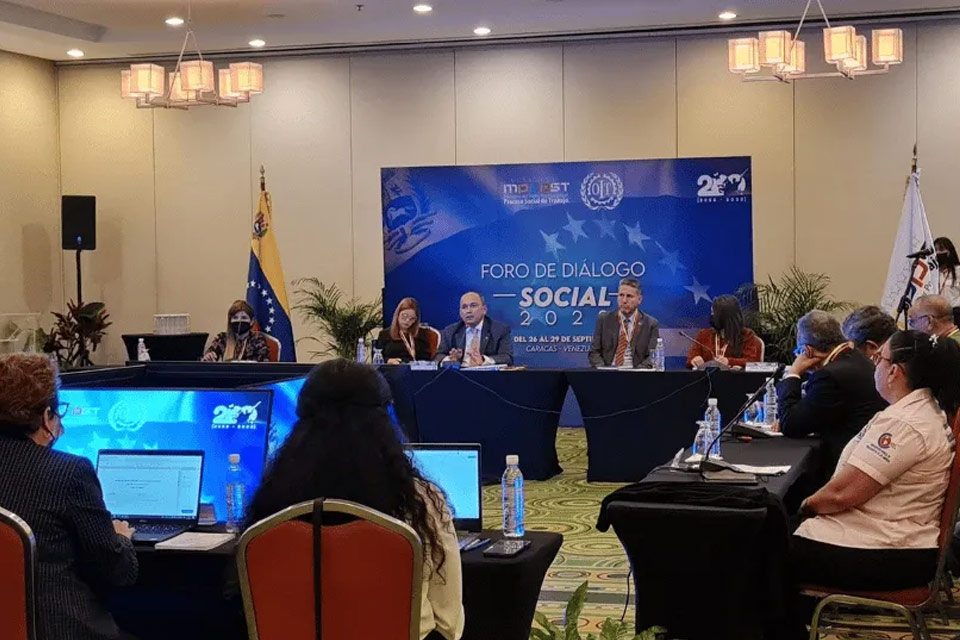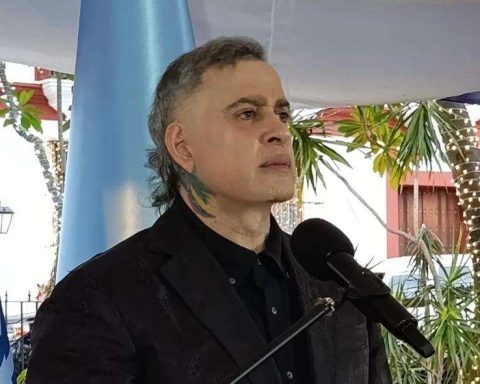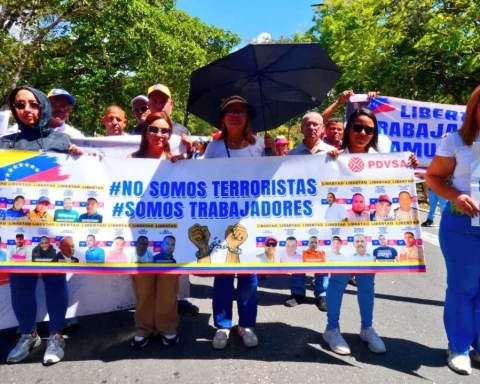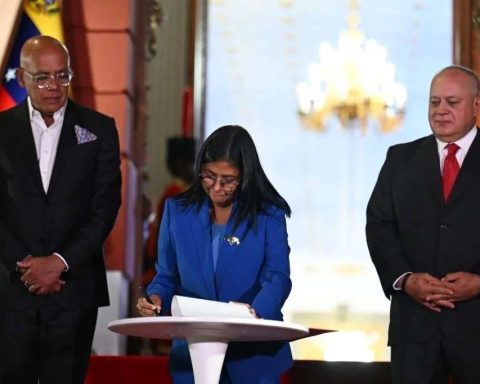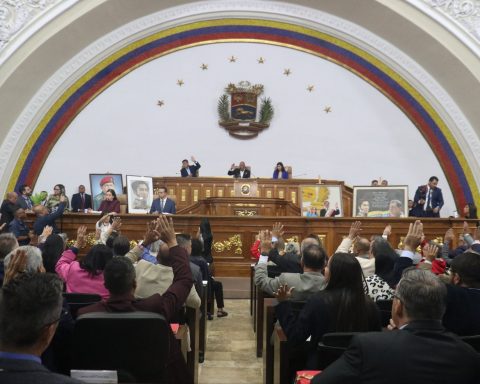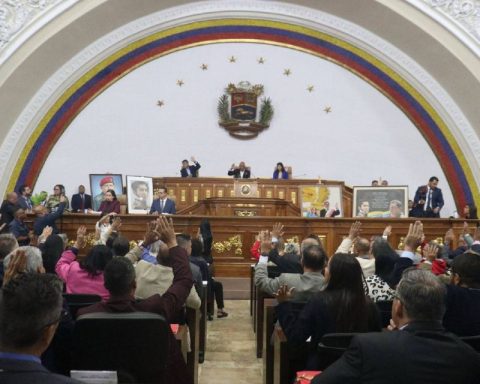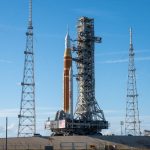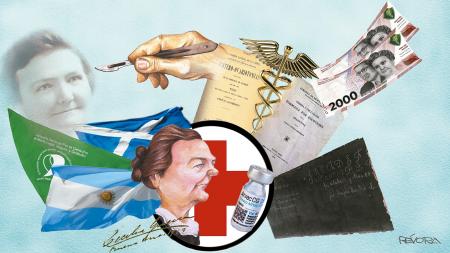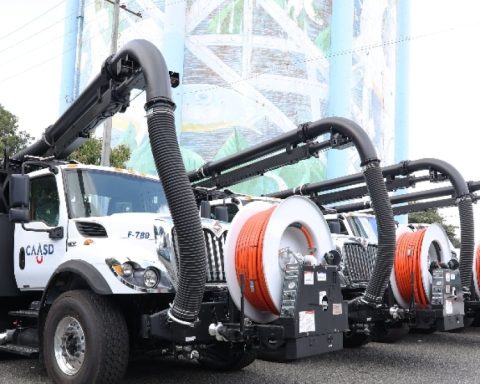The excuses given so far by the government at the discussion table with representatives of the ILO, Fedecámaras and the CTV for not announcing a salary adjustment are that they do not have sufficient resources for it and that they will wait for these meetings to end. The representatives of the tripartite table will meet again this Thursday, February 16
A delegation of the International Labor Organization (ILO) has been in the country for several weeks, to lead a series of meetings between the administration of Nicolás Maduro, the largest business union Fedecámaras and the Confederation of Venezuelan Workers (CTV), with the objective of reviewing compliance with various agreements related to the establishment of the minimum wage, freedom of association and tripartite consultation.
Till the date, few ILO recommendations have been taken into consideration by the government, but for the representatives of the business associations and trade unions, the fact that a meeting between all the parties has been achieved is an advance.
The expectations of what is agreed revolve around the decision on the salary of the workers. However, according to José Elías Torres, representative at the dialogue table for the CTV, there are three priority issues in these discussions: the methodology for setting wages, freedom of association and tripartite meetings.
“The ILO is a very important arbitrator and intermediary in these meetings. At no time would the ILO come to Venezuela to force the government to announce an increase in the minimum wage, this is not ILO policy, this is a power of the Executive taking into account the recommendations of the international organization, businessmen and unions,” Torres said.
This Thursday, February 16, the government, businessmen and unions will meet again in two meetings in Caracas in which the technical salary table and the fate of the detained workers are expected to be finalized. “After extensive discussions, it was agreed to set up a technical table that would promote a salary policy based on the data we have, those that are yet to be provided, that a salary be set that takes into account the needs of the workers and that does not allow hyperinflation to set in again.”
Several union centrals have proposed an “emergency income” as a complement to the integral salary, while the increase in the minimum wage is defined in the technical table together with the ILO. However, this approach has not had an echo in the Maduro administration either.
The points to be discussed and what progress has been made:
-A first meeting It occurred in April 2022 with the ILO in a tripartite manner in Venezuela, after 20 years. This meeting was achieved with a previous agenda that was later reviewed in September of the same year. At that time, after delays and after pressure from the business and trade unions, a new meeting was agreed to be held at the end of January 2023 on the island of Margarita with the Social Dialogue Forum.
-In this meeting, the ILO He made observations on the delay of the agreements and made recommendations and it was agreed to start talks on three agreements.
-Agreement 26 tries to establish the methodology To set a new salary for workers, the figures on economic activity, the level of poverty, the number of public employees, retirees and pensioners from the public administration must also be analyzed.
For these meetings, the official indicators were required and those delivered so far by the government were not up to date, being one and two years late, therefore they were not sufficient to carry out a technical analysis. This was one of the claims that was made at the discussion table and it was answered that they would deliver the updated data.
On the other hand, a periodic review of this agreement must be agreed to make the necessary salary adjustments.
Until now, the government has indicated in these discussions with the presence of ILO representatives that it will not announce a salary adjustment until these meetings are held, that they do not have sufficient resources to finance an increase due to the precariousness of the economy due to the sanctions. from United States.
While the business sector has indicated that they are willing to offer that “emergency income” that the unions propose.
-In agreement 87 referring to freedom of association the “blocking stones” in the election processes of the different unions in the country are discussed, as well as reviewing the cases of workers arrested for alleged “non-union practices.” On this last point, the unions request the General Prosecutor’s Office to review these cases since the government maintains that they cannot influence the actions of another public power. However, the government representative indicated that he will intercede before the Public Ministry.
To date, seven workers have been detained for these alleged “non-union practices”, while more than 80 are under a filing regime.
This agreement also discusses the discounts that are made to unionized workers in the public administration and that different government agencies have not delivered to the respective union organizations. In these weeks it is expected that the amounts of the union contribution that have not been delivered in many years can be calculated.
-For its part, in agreement 144 regarding tripartite dialogue it seeks to advance in a consensual agenda to improve the living conditions of workers. By virtue of the union and business representatives of the discussion table, it is positive and an achievement that the Venezuelan authorities are participants in these meetings.
Post Views: 118
